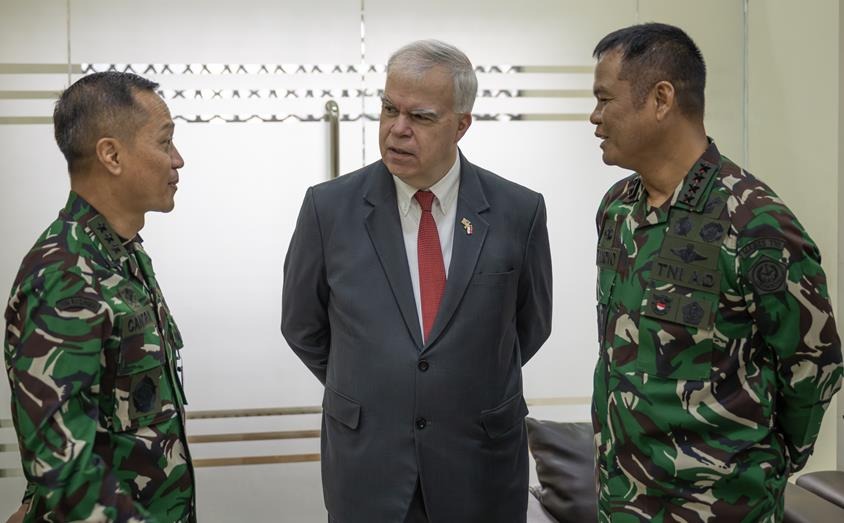The Indonesian National Armed Forces (TNI) and the United States Armed Forces, alongside 11 other nations, officially launched the 2025 Super Garuda Shield exercise at the Naval Staff and Command College in Jakarta. The large-scale drill, running from August 25 to September 4 across Jakarta, Baturaja, and Dabo Singkep, involves over 6,000 troops from 13 participating countries, including Australia, Canada, the United Kingdom, Japan, and France. Established in 2006 as a bilateral exercise between the U.S. and Indonesia, it was expanded in 2022 to include multiple partners, reflecting the growing weight of Indo-Pacific defense collaboration. The exercise now stands as one of the region’s most visible demonstrations of multinational military cooperation.
Commander of U.S. Indo-Pacific Command, Admiral Samuel J. Paparo, praised the exercise as a premier regional event that sharpens joint readiness in diverse combat scenarios. He emphasized that operations ranging from amphibious maneuvers to jungle warfare build interoperability and resilience among allied forces. According to him, this shared training ensures that regional partners remain capable of responding effectively to evolving security challenges. His remarks underscored a consistent U.S. message: safeguarding a free and open Indo-Pacific requires unity in action.
For Indonesia, the exercise holds both strategic and symbolic weight. Deputy Commander of TNI, General Tandyo Budi Revita, framed the drill not only as a military endeavor but as a bridge of trust and a beacon of friendship. By presenting Super Garuda Shield as a platform of mutual confidence, the general highlighted its dual function: strengthening deterrence while reinforcing diplomatic ties. His words signaled Jakarta’s intent to position itself as both a regional security hub and a reliable partner in global peacekeeping.
The diplomatic undertone was echoed by U.S. Charge d’Affaires, Ambassador Peter Haymond, who stressed the Comprehensive Strategic Partnership between Washington and Jakarta. He described the exercise as a testament to the shared commitment of all participating nations to peace and stability. Beyond diplomacy, the exercise integrates live-fire drills, airborne and amphibious operations, jungle warfare training, and the deployment of High Mobility Artillery Rocket Systems (HIMARS). These activities, blending tactical precision with cross-cultural exchanges, are designed to prepare multinational forces for combined defense of the Indonesian archipelago while advancing broader Indo-Pacific security.
Alexander Jason – Redaksi



